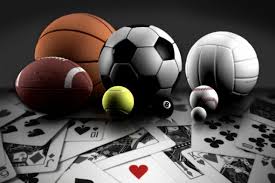
Best strategies for successful sports
In the pursuit of sporting excellence, athletes and teams alike are constantly searching for ways to improve performance. Whether you’re an individual athlete training for a competition or part of a team aiming for victory, implementing effective strategies is crucial. This article will delve into the best strategies for successful sports, covering various aspects including training, mental toughness, teamwork, and nutrition. Don’t forget to check out Best strategies for successful sports Marvelbet for insights on sports betting as you develop your strategies.
1. Setting Clear Goals
One of the fundamental steps toward success in sports is setting clear and achievable goals. Goals provide direction and motivation, helping athletes focus on what they want to achieve. When setting goals, it’s essential to ensure they are SMART: Specific, Measurable, Achievable, Relevant, and Time-bound. For instance, instead of saying, “I want to be better at running,” a SMART goal would be, “I want to complete a 5K race in under 25 minutes within the next three months.”
2. Consistent Training Regimen
The significance of a consistent training regimen cannot be overstated. Athletes should establish a structured training plan that incorporates various components, such as strength training, endurance workouts, and skill drills. Consistency helps build muscle memory, improves physical conditioning, and increases confidence. Moreover, athletes should regularly assess their training to identify areas for improvement and make necessary adjustments.
3. Mental Toughness and Focus
In many sports, physical ability is only part of the equation. Mental toughness plays a crucial role in an athlete’s performance. Developing mental resilience allows athletes to perform under pressure, stay focused during competition, and recover from setbacks quickly. Techniques such as visualization, mindfulness, and positive self-talk can enhance mental toughness. Engaging in mental exercises, such as imagining successful performance scenarios, can also help athletes prepare for competition.

4. Teamwork and Communication
For team sports, effective communication and teamwork are paramount to success. Athletes must develop trust and camaraderie with their teammates to function cohesively during competition. Regular team meetings, group practice sessions, and open communication can foster a positive team environment. Moreover, understanding each other’s strengths and weaknesses will enable team members to support one another effectively during games and competitions.
5. Nutrition and Hydration
The role of nutrition in sports performance is often overlooked. Proper nutrition fuels the body, enhances recovery, and boosts overall performance. Athletes should work with nutritionists to develop meal plans that meet their specific needs, focusing on carbohydrates, proteins, fats, vitamins, and minerals essential for performance. Furthermore, staying properly hydrated is crucial, as dehydration can significantly hinder performance and increase the risk of injury.
6. Recovery and Rest
Recovery is just as important as training when it comes to achieving athletic success. Athletes must prioritize rest, sleep, and recovery strategies to allow their bodies to heal and rejuvenate. Incorporating activities like stretching, yoga, and foam rolling can help with muscle recovery. Furthermore, athletes should listen to their bodies; knowing when to push through discomfort and when to take a break is critical. Incorporating rest days into training schedules prevents burnout and reduces the risk of injuries.
7. Coaching and Support Systems
The guidance and support of coaches can significantly impact an athlete’s success. Coaches provide expertise, motivation, and strategic insights that help athletes improve their skills. It’s essential for athletes to maintain open lines of communication with their coaches, ensuring they receive constructive feedback. Additionally, surrounding oneself with a supportive network of family, friends, and fellow athletes can enhance motivation and provide emotional support during challenging times.

8. Analysis and Feedback
Continuous improvement is a cornerstone of success in sports. Athletes should regularly assess their performance through video analysis, statistics, and feedback from coaches. Understanding one’s strengths and identifying areas for improvement are vital for progression. Tools such as performance analytics and wearable technology can provide valuable insights, helping athletes make informed adjustments to their training and strategy.
9. Adaptability and Learning
Sports are inherently dynamic, and the ability to adapt to changing circumstances is crucial. Athletes must be open to learning from their experiences, both positive and negative. Whether it’s adjusting strategies in response to an opponent’s tactics or recovering from a disappointing performance, a growth mindset can help athletes thrive in competitive settings. Embracing challenges and viewing setbacks as learning opportunities foster resilience.
10. Enjoyment and Passion
Finally, one of the best strategies for success in sports is to maintain enjoyment and passion for the activity. Remembering why you started playing or competing is vital for sustaining motivation. Celebrating achievements, no matter how small, can boost enthusiasm. Engaging in sports with a sense of joy not only enhances performance but also contributes to long-term commitment and success.
Conclusion
Achieving success in sports requires a combination of physical training, mental fortitude, teamwork, and passion. By implementing the strategies discussed above, athletes can optimize their performance and reach their goals. Whether you’re an aspiring athlete or a seasoned competitor, always remember that the journey is as important as the destination. Keep pushing your limits, stay focused, and enjoy the sport you love.
